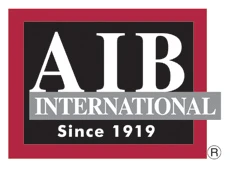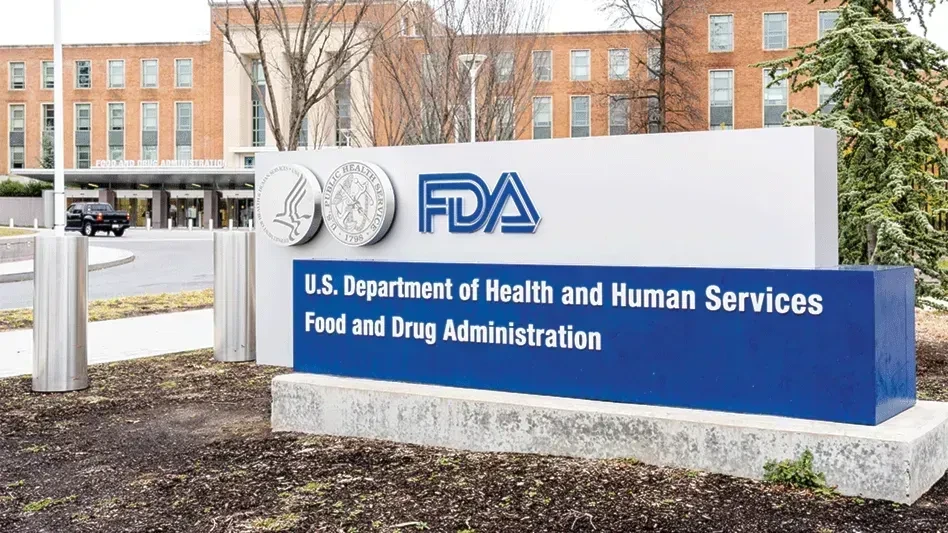
MANHATTAN, Kan. - January 2013 marks the 20th anniversary of AIB International’s office debut in Europe. In the past two decades, AIB’s global network has expanded from our headquarters in North America to include regional offices in Europe, Latin America, and Asia Pacific. With a dramatic increase in overseas audit and inspection demands and an ever-changing global market, AIB’s core value of providing highly educational inspection services to its clients continues to remains the same, AIB said.
In the late 80s, AIB began sending US-based auditors to Europe to inspect bakeries and other facilities related to US food producers. This work continued to grow with the addition of inspections for Dalgety, a major British food enterprise. Due to the increase in inspections related to Dalgety, US-based auditors were being sent overseas on a rotational basis for 3-4 weeks at a time. In 1992, the demand had grown enough that plans to establish a European-based AIB office were put in place. In January 1993, Betsy Blair, now head of GMP Audit Services, opened the AIB Europe office in a space leased from Leatherhead Food International.
For the first year, Betsy ran the office alone, but as business steadily increased AIB Europe expanded their audit staff. Among the first employees hired were John Hughes and Deryck Tremble. “My first year as an AIB inspector, I went to 25 countries”, says Deryck Tremble, current Regional General Manager for Europe, Middle East and Africa. Now the AIB audit team has representatives in 21 countries across the globe.
At the time the AIB Europe office originated, the focus of the European legislation was very different than the direction the United States food regulations had taken, most notably in the area of integrated pest management (IPM). “When we began inspecting food facilities overseas, there were still many companies using toxic bait as a pest control measure”, says Blair. “With AIB’s inspection-based approach to IPM, we were able to help those companies identify sources of pest activity and control the presence by eliminating conditions that attracted pests to the area in the first place.”
Initially, AIB Europe exclusively offered the AIB GMP Inspection, with an annual seminar offered for the first few years. “There was a draw to the AIB GMP Inspection because there is such a unique strength in the value of the physical inspection. It is what AIB is most widely known for”, says Blair. “Most European food companies were used to an auditor with a clipboard coming into their plants to evaluate paperwork. When AIB started coming into these plants, the people noticed a considerable difference in the value of the service.”
Business was originally centered in Western Europe, with a few requests for inspections in South Africa and some in the Middle East. Although AIB began working overseas at the request of Dalgety, it wasn’t long before large US-based companies, like East Balt, Walkers, and McDonald’s began using AIB to inspect their global suppliers. Now AIB has expanded their services to include certification audits under the Global Food Safety Initiative (GFSI), annual public food safety and food defense seminars, as well as private training and consulting to large- and small-sized food companies in countries across six continents. The AIB Europe office is now serving many more suppliers, as well as small, local companies. As business in the Middle East and Eastern Europe continues to grow, AIB is expanding their territory to include more Russian-based companies.
In the early 2000s, AIB expanded their services and began offering BRC audits as a service to their clients who were seeking a certified third-party audit provider. Although the impact of GFSI-accepted audit schemes has certainly been felt in North America over the past five years, GFSI adoption hasn’t affected AIB’s international offices as much as in the US. “GFSI-accepted audits have never been our main business. In the US, we have seen a large increase in the number of BRC, SQF, and FSSC 22000 audit customers we serve, but our international clients still mostly come to us because they like the value-added solutions they gain from the AIB GMP Inspection”, says Blair.
“We have clients who have used audit schemes, like the BRC audit, successfully for 15 years, but fail the AIB GMP Inspection at first because it is on such a different level. It is possible for a food facility to successfully complete a certification audit, but still have poor practices”, Deryck Tremble.
Although AIB expects to see a continued use of certification audits across the globe, one current trend is an increasing number of international companies that are starting to go back to using their own audits. As a provider of a variety of food supplier/vendor audits, AIB can provide these services at a significant cost savings when paired with our GMP Inspection. Another rising trend the European food industry is experiencing is an increasing demand for locally sourced products. As customers demand supporting their local industry, many businesses are sourcing more food products from local suppliers, especially meat products.
In the past 20 years, AIB’s global network has expanded, but the core values have remained the same. The AIB Europe office expansion is the same model used to develop territories in Africa, the Middle East, Asia, and Latin America. AIB now has four regional offices established in North America, Latin America, Asia Pacific, and Europe/Middle East/Africa, with representatives in 24 countries, 3 Canadian provinces, and 28 US states. This encompassing global network is cost-effective and bridges language barriers.
AIB Europe provides efficient, responsive, and affordable access for audits required in the European Union, Eastern Europe, and Africa and to the food safety and quality programs that set the precedent for food safety nearly 60 years ago in North America. AIB auditors are selected based on their experience in the food supply chain and are held to a high standard of annual training and accountability, providing clients with an invaluable resource in the day-to-day challenge of producing, packing and distributing safe, high-quality foods.
Latest from Quality Assurance & Food Safety
- Tanzania Embraces One Health Approach to Enhance Food Safety and Trade
- FDA Releases Allergen, Food Safety and Plant-Based Alternative Labeling Guidance
- Bird Flu Suspected in Some Ohio Waterfowl
- IFSAC Releases Annual Report for 2022 on Sources of Foodborne Illness
- In Memoriam: Tom Moore
- AFDO to Award Scholarships in Food, Drug and Product Safety Studies
- Revisit QA’s Top 10 Most-Read Articles of 2024
- USDA Seeks Nominations for Membership on Food Safety Advisory Committee





